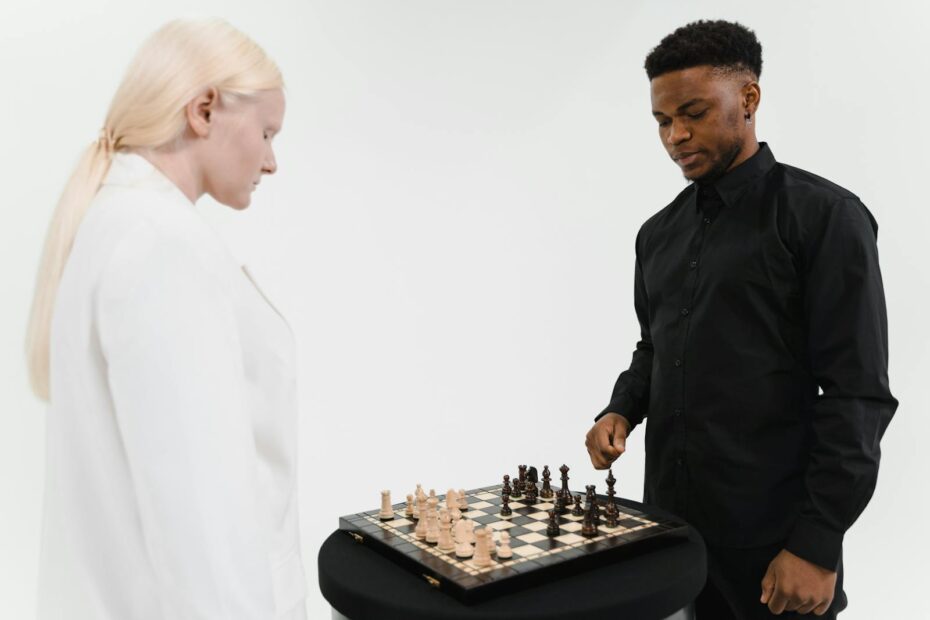In the intellectual battleground of chess, where each move can lead to triumph or defeat, understanding the nuances is crucial for every player. Among these nuances is a concept well-known but often misunderstood by many: the blunder. But, what is a blunder in chess? It’s more than just a simple mistake; it’s a move that deviates from strategic soundness, potentially costing a player the game. This guide will delve into the nature of blunders, helping you to understand and avoid them in your gameplay.
Defining A Blunder in Chess
A blunder in chess refers to a severely bad move that results from a miscalculation or oversight, leading to a significant disadvantage or loss of material without compensating benefits. Unlike minor errors or inaccuracies, blunders can dramatically alter the course of the game, usually to the detriment of the player committing them.
Types of Blunders
- Tactical Blunders: Missing a threat from the opponent, such as a fork, pin, or skewer, resulting in substantial material loss.
- Strategic Blunders: Failing to adhere to sound chess principles, such as controlling the center, safe king safety, or piece development.
- Time Management Blunders: Mismanaging one’s clock, leading to rushed decisions or time forfeit.
Recognizing and Avoiding Blunders
To improve your chess game, recognizing and minimizing blunders is crucial. This involves not only honing your tactical and strategic thinking but also enhancing your ability to foresee and plan against potential threats.
Strategies to Avoid Blunders
- Double-Check Your Moves: Before making a move, always consider the potential responses from your opponent.
- Practice Tactical Puzzles: Regularly solving chess puzzles can sharpen your ability to spot threats and opportunities.
- Study Chess Openings: Knowledge of standard openings can prevent early-game pitfalls.
- Manage Your Time Wisely: Use your time efficiently, allowing extra moments for critical positions.
- Review Your Games: Analyzing past games, especially losses, can reveal patterns in your play that may lead to blunders.
Learning from Blunders
Despite the desire to avoid blunders, they are an inevitable part of learning and progression in chess. Each blunder provides a unique opportunity to understand deeper aspects of the game. Chronicling and analyzing these missteps can transform them from mere setbacks into powerful lessons, driving improvement and strategy refinement.
Key Takeaways
| Aspect | Insight |
|---|---|
| Definition | A grave mistake in chess leading to significant disadvantage. |
| Prevention | Through practice, puzzle solving, and strategic learning. |
| Learning | Analyze and learn from each blunder to prevent future occurrences. |
In conclusion, understanding what constitutes a blunder in chess is fundamental to improving your game. By employing strategies to minimize these errors, diligently practicing, and learning from each misstep, you can elevate your chess skills and strategy. Remember, every grandmaster has blundered; what separates them from the rest is their ability to learn and grow from each mistake.
